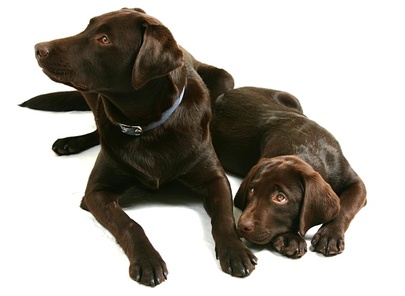Signs and Treatment of Dogs and Chocolate Poisoning
Unfortunately for those who like to spoil our pets, dogs and chocolates just don’t mix.
We all love to give our dogs treats and our canine friends love to receive them. We can use dogs treats as a reward for good behaviour, as a training tool or simply because we like to give our pets snacks and nibbles.
Caring for your dogs entails a lot of responsibilities. Giving them all the affection and attention that they need is just one of the best ways on how to care for them.
Sometimes giving them sweets feels like giving them the love that they deserve, but unfortunately we could be doing more harm than good.

Why Dogs and Chocolate Just Don't Mix
As much as our dogs would love to curl up on the sofa with us and
munch their way through a whole box of chocolates, and as much as we
would like them do so, we just can’t.
Chocolates contain an ingredient known as theobromine, which becomes toxic when ingested by dogs in sufficient quantities.
Theobromine is a xanthine compound just like theophylline and caffeine. When taken in large amounts, they become toxic to the dog's body.
The Consequences Of Feeding Dogs With Chocolate
Once a dog eats even just a small slab of a chocolate bar, the theobromine found in the chocolate revolves around the dog’s blood stream and disrupts the proper function of the blood circulation system.
When the dog’s blood circulation is disrupted, it can pose great risks to their organs particularly their heart and kidneys.
Regardless of how much theobromine is eaten by the dog, it could still be very dangerous and poisonous to their health. It can even lead to the death of the dog in severe cases.
What are the Signs of Chocolate Toxicity in Dogs?
When your dog is fed chocolate, whether intentionally or accidentally, you will see several different symptoms like choking, vomiting, diarrhea, restlessness, frequent urination, and excessive thirst.
These symptoms, though very common in nature, could lead to more serious conditions to your dog.
Depending on the level of toxicity, the symptoms may appear immediately or may take hours before the onset of the symptoms. Also, depending on the quantity of chocolate taken, dogs may experience light to severe symptoms.

What Should We Do In Case Of Chocolate Toxicity?
If you know or suspect that your dog has ingested chocolate, the best thing to do is to contact the vet at once.
The vet may need to know the exact or approximate amount of chocolate ingested by the dog. This will help them decide as to what treatments are necessary.
There is no specific antidote for chocolate poisoning but these are the things that can be done:
- Vomiting may be induced in the first 1-2 hours after the dog has ingested the chocolate.
- Activated charcoal can be administered to inhibit the absorption of the toxin to the dog's body.
- If neurological signs are present, it may be necessary to administer anticonvulsant medications.
- The dog should not be allowed to eat anything until it is clear that all the toxins have been eliminated from the body.
- An intravenous therapy is necessary especially that the dog is not allowed to take in any food. This will serve as nutrients to the cells.
The incompatibility between dogs and chocolate is becoming more widely known but since dog owners are the ones in control of what the dogs take in, they should understand the dangers that chocolates can cause to the health of the dogs.
Related Articles
Homemade Dogs Treats Because Dogs And Chocolate Don't Mix
Labrador Retriever And Canine Health
Food And Nutrition